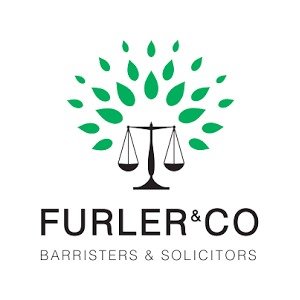Best Commercial Real Estate Lawyers in Clare
Share your needs with us, get contacted by law firms.
Free. Takes 2 min.
Free Guide to Hiring a Real Estate Lawyer
List of the best lawyers in Clare, Australia
About Commercial Real Estate Law in Clare, Australia
In Clare, Australia, commercial real estate law governs the sale, purchase, lease, and utilization of properties used for business purposes. This can include a broad variety of properties, ranging from office buildings, retail spaces, and warehouses to large apartment complexes, agricultural lands, and development sites. These laws are designed to protect all parties involved, ensuring fair transactions and preventing disputes and misunderstandings. They encompass a diverse range of issues including contract law, property rights, land use, environmental regulation, and insurances.
Why You May Need a Lawyer
Hiring a lawyer specialized in commercial real estate law can be vital in several circumstances. If you are buying or selling commercial property, a lawyer can help ensure the contract is legal and fair. They can also help with disputes over property or lease agreements. Furthermore, business owners who are leasing commercial property may need a lawyer to help negotiate the terms of the lease. In essence, any legal matter where commercial property is a central issue will likely require the kind of specialized legal advice that a commercial real estate lawyer can provide.
Local Laws Overview
Commercial real estate laws in Clare, Australia are largely based on common law and legislative enactments. There are specific laws relating to the transfer of property, land rights, tenancy matters, zoning requirements, and environmental factors. For example, under the Real Property Act 1886 and the Conveyancing Act 1919, the transfer of commercial property must be in writing and registered. Furthermore, there are strict regulations concerning building codes, health and safety, and environmental impact that often apply to commercial properties. Understanding these local laws is essential when navigating the commercial real estate landscape.
Frequently Asked Questions
What is a commercial lease?
A commercial lease is a legally binding agreement between a landlord (usually the owner of a property) and a business that allows the business to use the property for commercial activities.
What is included in a commercial lease agreement?
A commercial lease agreement would usually detail the amount of rent payable, the term of the lease, the purpose for which the premises may be used, and the rights and responsibilities of both the landlord and the tenant.
What is due diligence in commercial real estate?
Due diligence in commercial real estate refers to the comprehensive appraisal of a property before acquiring it to confirm its legal, financial, and physical status. This process usually involves checking the ownership records, history of the property, environmental factors, and the financial viability of the investment.
Can I negotiate a commercial lease agreement?
Yes, commercial lease agreements are generally negotiable. Both the landlord and tenant can negotiate on various terms in the agreement such as the rent, lease duration, lease extensions, etc.
Do I need a real estate lawyer to buy a commercial property?
While it is not legally required in most situations, it is highly recommended. A real estate lawyer can help you understand the transaction, ensuring that your rights are protected and your obligations clearly spelled out.
Additional Resources
There are numerous resources available for those seeking information or advice on commercial real estate law in Clare, Australia. These include the South Australian Government's Department for Infrastructure and Transport, Law Society of South Australia, and various professional legal and real estate networks.
Next Steps
If you require legal assistance in commercial real estate, your first step should be to consult a solicitor who specializes in this area. This professional can provide advice tailored to your personal situation and guide you through the process. You should prepare in advance of the meeting by gathering relevant documents and formulating a clear outline of your situation and goals.
Lawzana helps you find the best lawyers and law firms in Clare through a curated and pre-screened list of qualified legal professionals. Our platform offers rankings and detailed profiles of attorneys and law firms, allowing you to compare based on practice areas, including Commercial Real Estate, experience, and client feedback.
Each profile includes a description of the firm's areas of practice, client reviews, team members and partners, year of establishment, spoken languages, office locations, contact information, social media presence, and any published articles or resources. Most firms on our platform speak English and are experienced in both local and international legal matters.
Get a quote from top-rated law firms in Clare, Australia — quickly, securely, and without unnecessary hassle.
Disclaimer:
The information provided on this page is for general informational purposes only and does not constitute legal advice. While we strive to ensure the accuracy and relevance of the content, legal information may change over time, and interpretations of the law can vary. You should always consult with a qualified legal professional for advice specific to your situation.
We disclaim all liability for actions taken or not taken based on the content of this page. If you believe any information is incorrect or outdated, please contact us, and we will review and update it where appropriate.








